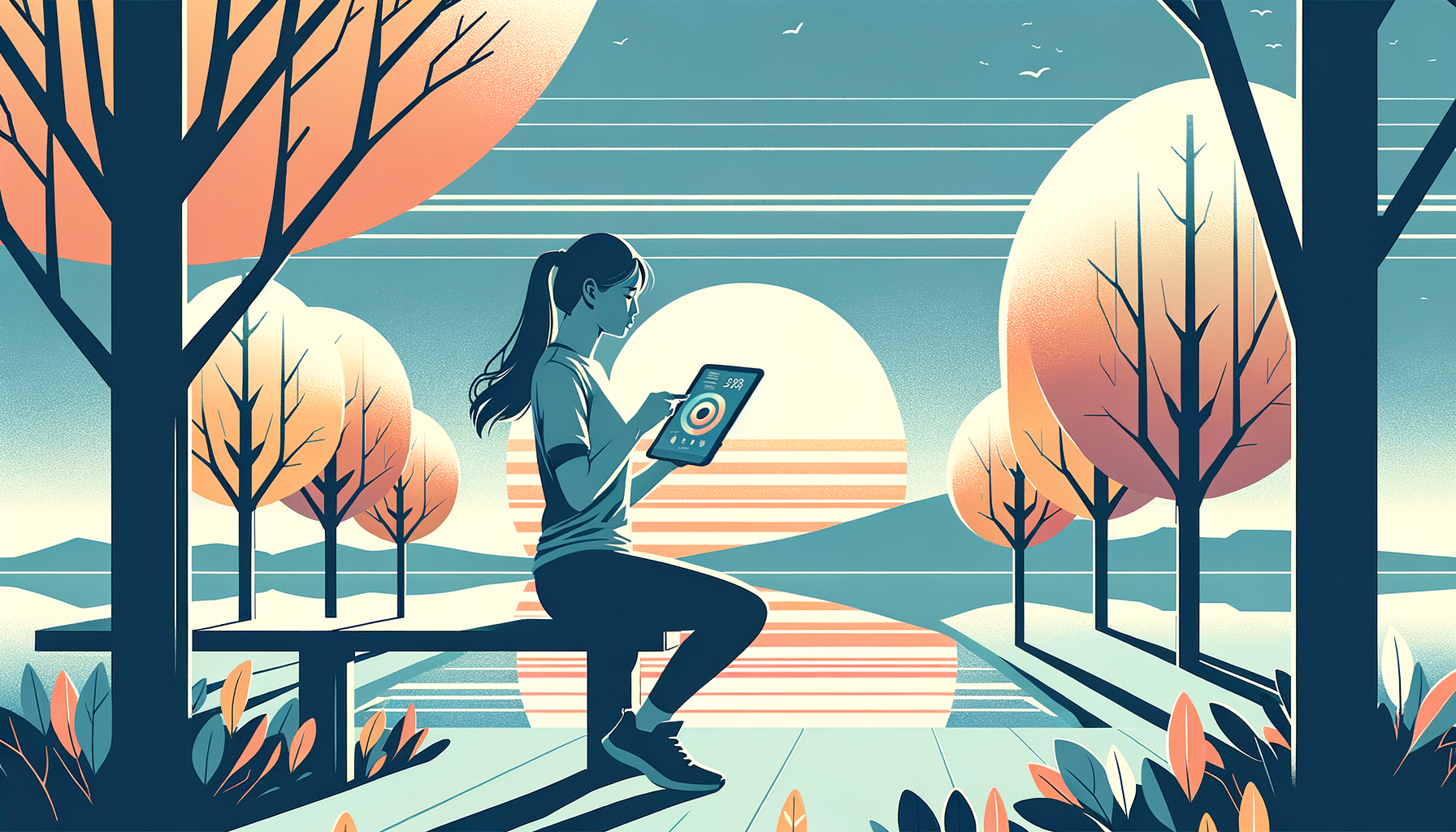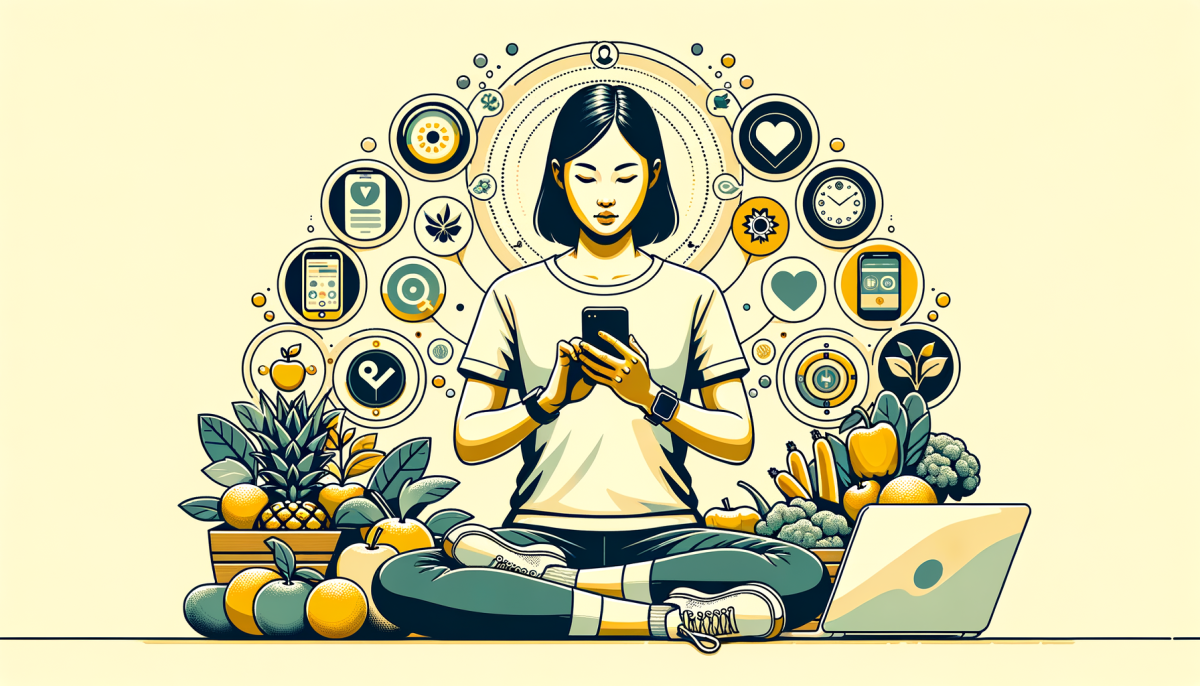Introduction
In the dynamic intersection of technology and wellness, a new breed of applications is emerging, designed to bolster our pursuit of a healthier lifestyle. These digital tools, with their innovative features and user-friendly interfaces, are transforming the way we approach fitness, nutrition, mental health, and overall well-being. They are not just mere applications, but reliable companions in our journey towards a healthier, more balanced life. This article delves into the world of these wellness-centric apps, shedding light on how they are reshaping our health habits and routines, and ultimately, supporting us in our quest for a healthier existence.
Fitness Tracking Apps

In the realm of health and wellness, fitness tracking applications have emerged as indispensable tools. They serve as digital companions, guiding users on their journey towards a healthier lifestyle. These applications, with their myriad of features, provide a comprehensive overview of one’s physical activities, thereby enabling users to monitor their progress and set achievable fitness goals.
One of the most salient features of these applications is their ability to record and analyze a wide array of data. From the number of steps taken in a day to the intensity of a workout session, these applications meticulously track every aspect of one’s physical activity. This data, when presented in an easy-to-understand format, provides users with a clear picture of their fitness levels. It allows them to identify areas of improvement and motivates them to push their boundaries.
Moreover, these applications often come equipped with personalized workout plans and diet charts. They take into account the user’s current fitness level, health conditions, and fitness goals to curate a plan that is both effective and sustainable. This personalized approach not only ensures that the user stays motivated but also reduces the risk of injuries and health complications.
In addition, these applications often incorporate elements of gamification to make the fitness journey more enjoyable. They reward users for achieving their goals, thereby fostering a sense of accomplishment and encouraging them to stay consistent. Furthermore, many of these applications also offer a social platform where users can share their progress, exchange tips, and draw inspiration from each other. This sense of community can be a powerful motivator, helping users to stay committed to their fitness goals.
In conclusion, fitness tracking applications are revolutionizing the way we approach health and wellness. They provide a holistic view of one’s fitness journey, making it easier for users to stay motivated and achieve their goals. With their personalized plans, gamification elements, and social platforms, these applications are making fitness more accessible and enjoyable for everyone.
Mental Health Applications
In the realm of digital wellness, a plethora of applications have emerged, specifically designed to bolster mental health. These applications, ingeniously crafted, serve as virtual sanctuaries, providing solace and support to individuals grappling with mental health issues. They offer a myriad of features, from guided meditations to cognitive behavioral therapy techniques, all aimed at fostering mental resilience and tranquility.
Take for instance, Headspace, an application that has gained considerable acclaim for its comprehensive approach to mental well-being. It offers a smorgasbord of mindfulness exercises, meditation guides, and sleep aids, all meticulously curated to help users navigate the tumultuous seas of stress, anxiety, and insomnia. The app’s user-friendly interface and personalized approach make it an invaluable tool in the quest for mental equilibrium.
Another noteworthy contender in this digital arena is Talkspace. This application breaks down the barriers to traditional therapy by offering users the ability to connect with licensed therapists via text, audio, or video. This innovative approach not only democratizes access to mental health support but also allows individuals to seek help in a manner that suits their comfort and convenience.
Lastly, there’s Moodpath, an application that functions as a digital mental health companion. It prompts users to answer questions about their emotional state three times a day, thereby tracking mood fluctuations and providing insights into their mental health patterns. This data-driven approach empowers users to understand their mental health better and take proactive steps towards improvement.
In conclusion, these applications represent the intersection of technology and wellness, demonstrating how digital tools can be harnessed to support mental health. They offer a beacon of hope in a world where mental health issues are increasingly prevalent, providing accessible and effective solutions right at our fingertips.
Nutritional Guidance Apps
In the realm of digital wellness, a plethora of applications have emerged, offering guidance on nutritional matters. These applications, often referred to as nutritional guidance apps, are designed to assist users in making informed decisions about their dietary habits. They provide a wealth of information, from calorie counts to detailed nutritional breakdowns, and can be tailored to individual dietary needs and preferences.
One such app, MyFitnessPal, is a veritable cornucopia of nutritional information. It allows users to track their food intake, providing a comprehensive breakdown of the nutritional content of each meal. This includes not only the number of calories consumed, but also the amount of protein, carbohydrates, and fats. The app also offers a feature that allows users to set and track their personal health goals, making it a valuable tool for those seeking to maintain or improve their health.
Another noteworthy app in this category is Fooducate. This app goes beyond simply tracking calories and provides users with a deeper understanding of the food they consume. It grades food items based on their nutritional value, helping users to make healthier choices. The app also offers diet tips and recipes, making it a comprehensive resource for those seeking to improve their diet.
Lastly, there’s Lifesum, an app that offers personalized meal plans and diet advice. It takes into account the user’s lifestyle, health goals, and dietary preferences to create a customized plan. The app also tracks the user’s progress and provides feedback, making it a dynamic tool for maintaining a healthy lifestyle.
In conclusion, nutritional guidance apps are a valuable resource for those seeking to improve their health and wellness. They provide a wealth of information and tools that can assist users in making informed decisions about their diet. Whether you’re looking to lose weight, maintain a healthy lifestyle, or simply gain a better understanding of your dietary habits, these apps can provide the guidance and support you need.
Conclusion
In the final analysis, the symbiosis of technology and wellness has birthed a plethora of applications that bolster a salubrious lifestyle. These digital tools, with their multifaceted features, have become indispensable allies in our quest for health and well-being. They offer a myriad of benefits, from fostering physical fitness to nurturing mental tranquility, and from promoting nutritious eating to ensuring restful sleep. As we navigate the labyrinth of modern life, these apps serve as our compass, guiding us towards a healthier existence. The future promises even more innovative solutions, further blurring the lines between technology and wellness, and making the pursuit of a healthy lifestyle not just a possibility, but a convenient reality.





